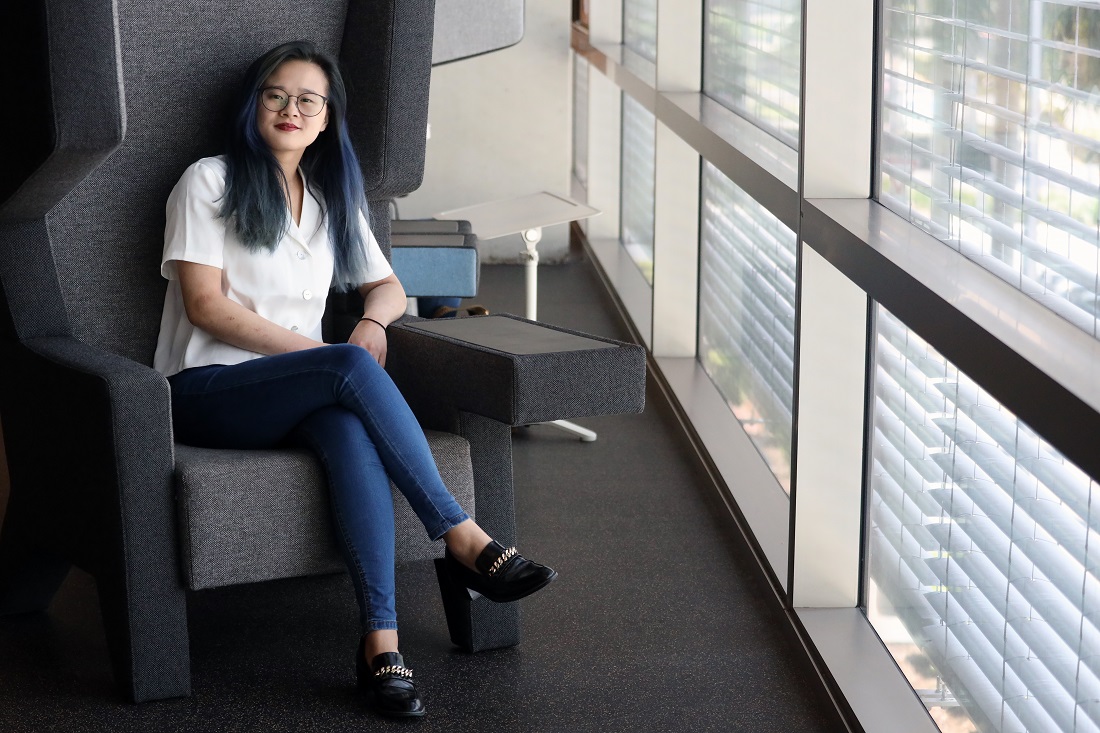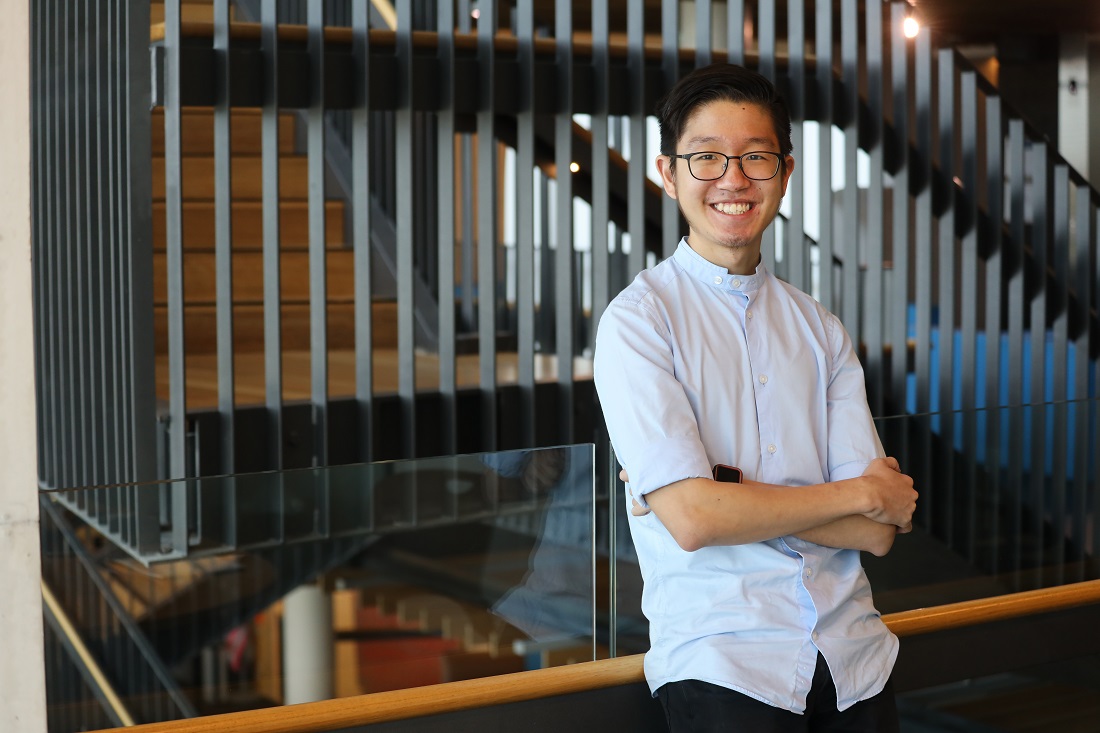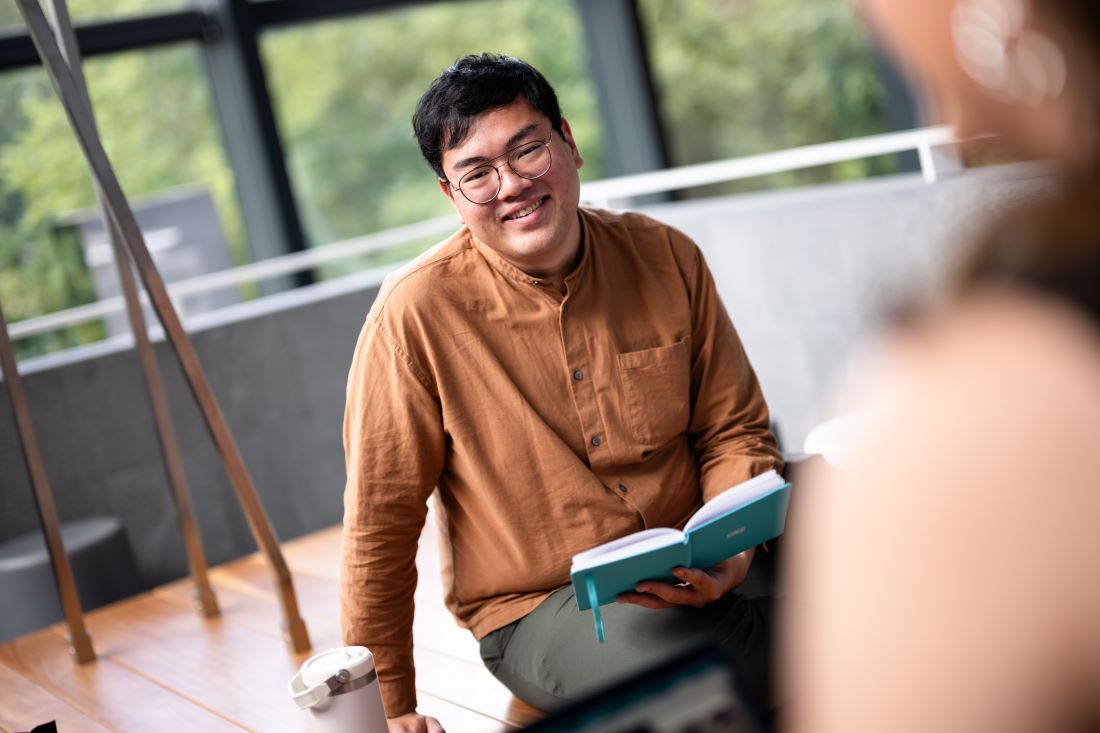Highlights
- Study at Australia’s number 1 ranked university for communication and media studies (QS World Rankings, 2024).
- Master the latest skills in digital trends, audience analysis, media, and data analytics.
- Gain real-world experience through industry placements and learn from Australia’s top news, media, and communication researchers.
- Graduate workforce-ready, with QUT communication graduates in high demand across news organisations, advertising agencies, government roles, and leading global brands.
How to apply for the Bachelor of Communication
Our majors are all designed to help you harness the power of new and emerging communication platforms. Once in your degree, you'll be able to choose which of the following majors you'd like to pursue:
- Bachelor of Communication (Digital Advertising)
- Bachelor of Communication (Community and Public Relations)
- Bachelor of Communication (Journalism)
- Bachelor of Communication (Media and Communication Industries)
Why study a Bachelor of Communication?
The QUT Bachelor of Communication enables you to harness the power of media and communication platforms for meaningful global impact across a range of professions and industries. A career in communication changes the world.
Real-world learning
Emerging media and communication technologies, like artificial intelligence, are rapidly changing job titles and career opportunities. In our degree, you not only develop a sophisticated understanding of the latest digital trends, platforms and technologies, but also cultivate a suite of highly transferable capabilities that strengthen your employability no matter what the future holds.
You’ll be working with industry experts as teachers, real-world clients providing briefs for assessment, and collaborating with other students as you will in the field. Along the way, you’ll learn from industry experts within the world-leading Digital Media Research Centre – QUT's home of groundbreaking insights and strategies in digital media and communications.
As you work on assignments and projects, you can even submit your university works for recognition through industry partners.
You’ll even be given a deep understanding of communicating and collaborating in the workplace, so you’ll have the professional skills necessary for a long and successful career.
Flexible course options
With modern communications roles and career paths growing by the day, the demand is there for graduates with any number of specialisations and skill sets. To help support a diverse, strong cohort of graduates with unique capabilities, QUT lets you tailor your communication degree to suit your interests.
You’ll be required to undertake:
- Bachelor of Communication core units
- a communication first major.
From there, you can add one of the following options to your studies:
- a second communication major
- two communication minors (shortened, condensed forms of studying majors)
- one communication minor and your chosen electives
- a series of chosen electives, tailored to your interests.
Double degrees
With a double degree, you'll gain an even broader range of skills and knowledge and greater career flexibility. You can study communication in a variety of double degree settings:
- Bachelor of Business/Bachelor of Communication
- Bachelor of Communication/Bachelor of Information Technology
- Bachelor of Communication/Bachelor of Justice
- Bachelor of Communication/Bachelor of Laws (Honours)
- Bachelor of Communication/Bachelor of Science.
Highlights
- Study at Australia’s no. 1 university for communication and media studies (QS World Rankings, 2024).
- Master the latest skills in digital trends, audience analysis, communication strategy, media, and data analytics.
- Gain real-world experience through industry placements and complete projects briefed by real clients.
- Learn from Australia’s top news, media, and communication researchers at QUT’s world-leading Digital Media Research Centre.
- Become proficient in workplace communication and collaboration as you work with students across different fields.
- Submit your university assignments and projects for external recognition through industry partners.
- Graduate workforce-ready, with QUT communication graduates in high demand across news organisations, advertising agencies, government roles, and leading global brands.
Flexible course options
Tailor your communication degree to suit your interests and graduate with a unique set of specialisations and skills. Our Bachelor of Communication lets you combine your chosen major with a second major or a combination of electives and minor study areas, allowing you to study up to three different areas of communication within your degree.
Double degrees
Increase your graduate pathways and employability by combining your Bachelor of Communication with another degree in our range of double degrees.
Course pathway options
Graduates of the course/s listed below will be automatically offered a place in the Bachelor of Communication.
Combine your passions
'I found that my degree gives me the opportunity to use my creative side, while helping me to develop as a professional. I feel that it’s important to try and integrate your passions into everyday activities, and my degree choice allows me to do just that. My course is very practical and offers work integrated learning, so I can gain experience in the industry while completing my degree.'
Business and communication student
Customise your degree
'The flexibility of the communication degree was a strong motivator for me choosing to study at QUT. Through selecting majors, minors and complementary study units, you can customise the communication degree to suit your interests and career goals.'
Learn from the best
'I chose to study in the School of Communication at QUT because I understand that it is extremely outstanding in the field and is well known by the industry.'
Real collaboration
'I find that interdisciplinary collaboration is really important. I've met a lot of people with different backgrounds and skills and that allows us to draw together our expertise for our final projects.'
Valuable industry connections
'QUT has forged partnerships with local businesses and organisations, giving students like me the opportunity to gain hands-on experience and apply our skills in the real world. I've had the chance to work on projects for real clients, which has helped me build my portfolio and given me a taste of what it's like to work in the industry. The co-curricular programs and initiatives offered by QUT have also been invaluable in enhancing my employability and networking skills.'
Bachelor of Business (Marketing) and Bachelor of Communication student
Grow your confidence
'One of the best things in my course is how we actually get into the journalism practice, like being in front of the camera and interviewing real people for a real story. This is done with such a great support from tutors that really care about your growth. Doing news stories from scratch really helped push me to build a contact list for journalism and grow confidence as a journalist.'
Bachelor of Communication (Journalism) and Bachelor of Science student
Connect with professionals
'QUT gives students a lot of opportunities to enhance our soft skills and career paths through our academic journey. We have lectures with professionals who are working in the media and communications industry, and our professors and tutors often share the information of some events that students can participate in and connect with professionals and peers.'
Bachelor of Communication student
Real-world experiences
'My favourite aspects of the course were the dedicated tutors and my Work Integrated Learning (WIL) experience. During my Work Integrated Learning (WIL) unit, I had the privilege of completing work experience at La Boite Theatre. The most valuable takeaway from this experience was acquiring real-life skills in a professional workplace. I had the opportunity to engage with clients, collaborate with team members from various departments, and contribute to administrative tasks. Overall, my WIL experience at La Boite Theatre enriched my skill set and provided valuable insights into working in a theatrical environment.'
Bachelor of Communication graduate
Collaborative, engaging classes
'I enjoy all the units I’m studying. The teachers make it interesting and fun, so it’s always great to come to lectures. I appreciate the collaborative nature of group activities, as they not only enhance my comprehension but also expose me to diverse perspectives. This direct interaction brings the subject matter to life, providing a deeper understanding through real-time exchanges of ideas.'
Bachelor of Communication student









#1 in Australia and #19 globally for communication and media studies
QS World University Rankings by Subject 2024
Keep up to date
QUT courses for you
Like to save your courses?
Please enter your first name and email so we can save your courses for you